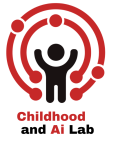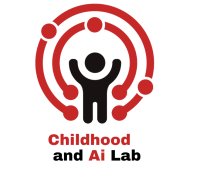About the Fellowship
The Childhood & AI Lab Research Fellowship brings together innovative scholars investigating how AI affects children’s cognition, learning, social relationships, mental health, creativity, identity, autonomy, and overall development and wellbeing.
Program Overview
The fellowship expands the number of researchers whose work advances our understanding of how AI shapes attention, learning, creativity, social development, and decision‑making in children and adolescents. Fellows bridge developmental science and technology to translate findings into actionable guidance for families, educators, policymakers, and technologists. The community is intentionally cross‑disciplinary—cognitive scientists learn from computer scientists; ethnographers inform neuroscientists; education researchers collaborate with ethicists—so ideas evolve faster and travel farther.
Who Should Apply
- Early‑stage researchers studying AI’s effects on children.
- Mid‑career & senior researchers bringing disciplinary expertise (e.g., psychology, education, public health, computer science, neuroscience, ethics) to questions of AI and childhood.
- AI experts & technical researchers interested in how systems are used by children (e.g., model evaluation, red‑teaming).
- Practitioner‑researchers in NGOs, UN agencies, government, or allied institutions conducting applied research in the field.
We strongly encourage applications from researchers at all career stages and from the Global South; diversity of perspectives and methods is essential to the mission.
Program Overview
- Duration: renewable annual or biannual terms
- Commitment: ~2–4 hours/month; peaks around symposia & collaborations
- Format: online, global, cross‑disciplinary
Benefits
Professional Visibility
- Active promotion through Lab channels and networks
- Connections to media, policymakers, and industry
- Amplification to diverse stakeholder communities
Intellectual Community
- Cross‑disciplinary network of innovative researchers
- Regular engagement on AI’s societal impacts
- Peer support and collaborative problem‑solving
Research Development
- Constructive feedback across disciplines
- Opportunities for collaborative grants and multi‑site studies
- Early access to emerging findings & methods
- Formal or informal mentorship opportunities (as available)
Practical Impact
- Channels to translate research into policy & practice
- Connections to implementation partners in education, tech, and child welfare
Fellow Responsibilities
Public Affiliation
- Represent yourself as a Research Fellow of the Childhood & AI Lab
- Include fellowship designation in professional communications and profiles
Research Visibility
- Provide bio, interests, and selected publications for the Lab
- Contribute content to Lab channels
- Submit brief twice‑yearly updates on progress
Expert Advisory
- Offer occasional guidance within your expertise
- Provide input on initiatives, priorities, and strategy
Research Exchange
- Share relevant research via Lab channels
- Optional: present work‑in‑progress at internal symposia
- Engage in peer review and collaborative discussions
Public Engagement
- Amplify research and mission on professional platforms
- Contribute thought leadership pieces (approx. twice per year)
- Participate in Lab panels, webinars, and events as schedule permits
Consulting Opportunities (Optional)
Fellows may serve as paid consultants on Lab projects aligned with their expertise and participate in proposal development for relevant work. Collaboration on funded research or advisory engagements is possible and depends on resources available for specific studies.

